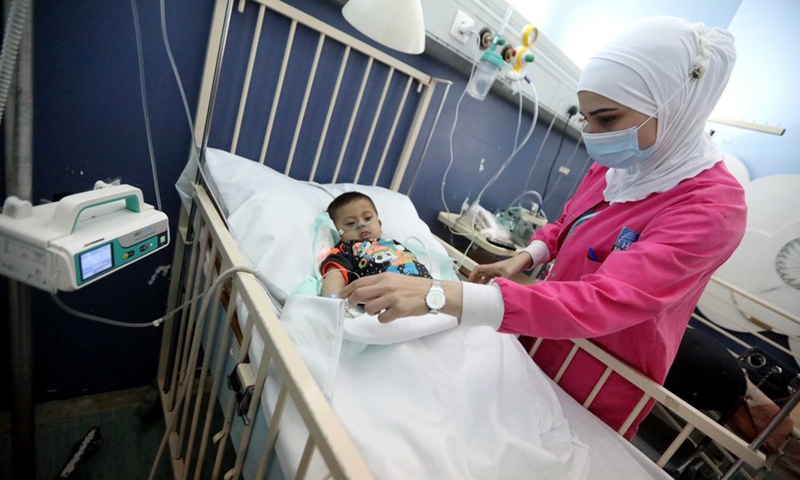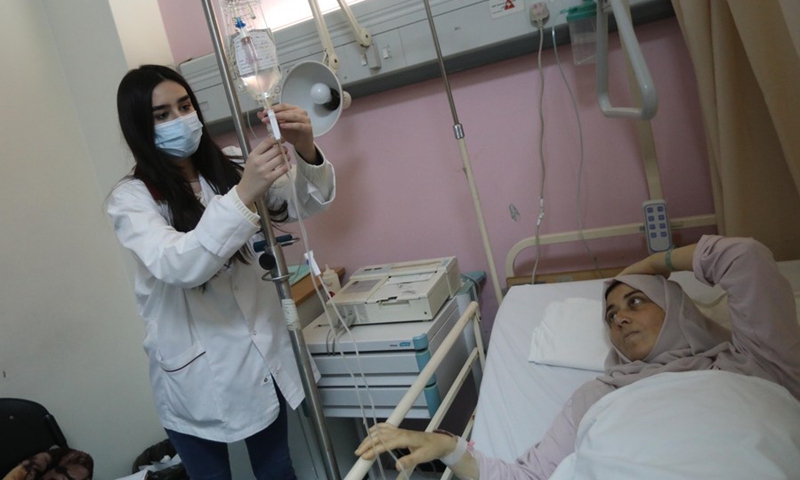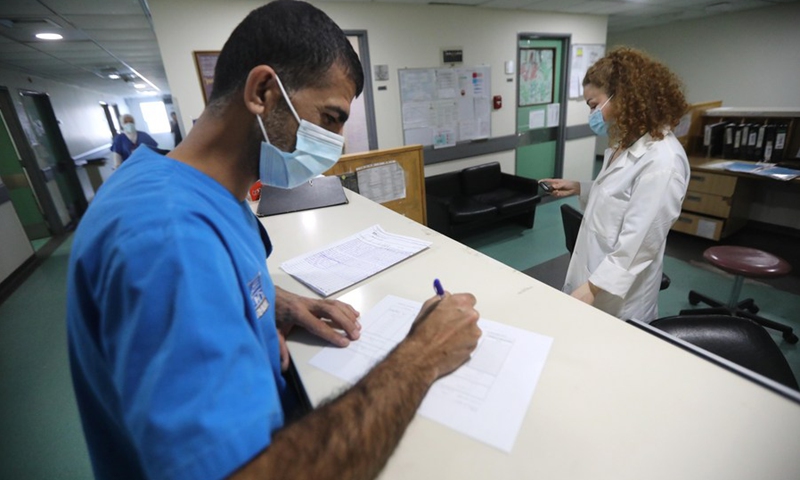
A nurse attends to a child patient in a hospital in Beirut, capital of Lebanon, on March 27, 2021.(Photo: Xinhua)

A nurse adjusts the dripping speed of the drip bottle for a female patient in a hospital in Beirut, capital of Lebanon, on March 27, 2021.(Photo: Xinhua)

A nurse attends to a patient in a hospital in Beirut, capital of Lebanon, on March 27, 2021.(Photo: Xinhua)

Two nurses work at the reception desk of a hospital in Beirut, capital of Lebanon, on March 27, 2021.(Photo: Xinhua)
Rita Sawaya, a Lebanese nurse in her 40s, feels so wistful about going to leave Lebanon next month for a new job at a hospital in Brussels, capital of Belgium. The woman, however, has no other choice as the woeful state of her country has left her hopeless about the future.
"I cannot express how sad I am to leave my homeland but my priority now is to secure a good future for my children," Sawaya told Xinhua.
Sawaya, who quit a renowned hospital in Lebanon, explained that it is now difficult to secure a proper education for her son and two daughters or a decent retirement plan for herself and her husband in Lebanon.
The Lebanese pensioners receive a lump sum from the National Social Security Fund upon their retirement, but the collapse of the Lebanese pound against the U.S. dollar in the past year has shrunk the value of their retirement benefits by more than 80 percent.
Security concerns have also been nagging the Lebanese, especially since the huge explosions that rocked the Port of Beirut last August, killing at least 200 and wounding about 6,000 others.
"I thought for a moment, when working with the injured people at the hospital, that one of my children could have been among the victims," Sawaya said.
Lara Lamaa, a 38-year-old nurse, also told Xinhua that she chose to go abroad after having spent 15 years at a renowned hospital in Lebanon, in order to secure a better life for herself and two daughters.
"I don't want to stay in a country that does not offer very basic rights. We are giving our lives to this country but we are getting nothing in return," said Lamaa, who will also leave for Brussels soon.
She described the scenes seen at the hospital after the Beirut's blasts as frightening.
"I can't allow my kids to live in such an insecure environment," the Lebanese nurse said.
Both nurses told Xinhua that hospitals the world over have been offering jobs since the COVID-19 pandemic.
More than 1,000 nurses quit their jobs in Lebanon in the past year for better opportunities abroad, according to Myrna Doumit, head of the Lebanese Order of Nurses.
Doumit said some hospitals cut the nurses' salaries in the light of the economic crisis when their salaries are already low.
"The highest salary in the sector stands at (an equivalent of) only 150 U.S. dollars a month when the nurses are draining physically and mentally," she told Xinhua.
According to Doumit, about 16,800 nurses are registered with the Lebanese order but only 12,000 live in Lebanon.
In addition, 49 percent of nurses have university degrees and they are the ones who leave the country, she noted.
Doumit urged hospitals to pay 40 percent of nurses' salaries at the exchange rate of 3,900 Lebanese pounds against the dollar instead of the official rate of 1,500 pounds.
